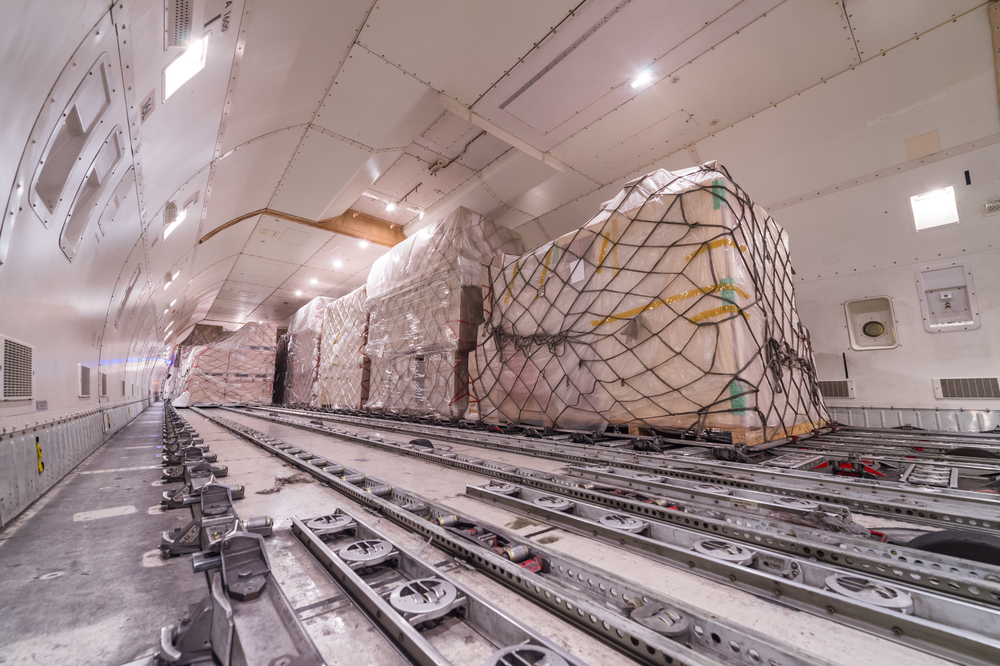North American retailers turn to airfreight as sales soar
09 / 06 / 2021

Credit: tratong/ Shutterstock
The North American retail industry has increased its use of airfreight to meet rising demand and respond to supply chain bottlenecks as sales look set to continue to increase.
In first-quarter results calls, a series of companies outlined the supply chain issues that had faced so far this year and how they had turned to airfreight to mitigate delays and capitalise on rising demand.
Mike Shaffer, chief operating and financial officer at clothing firm PVH Corp, which own brands such as Tommy Hilfiger and Calvin Klein, said that it was monitoring supply chain headwinds and contemplates certain inventory delays of four to six weeks on average.
He said that in order to maintain its sales plan for the second half of the year it use additional airfreight as well as “other costs”.
As well as delays to transport operations, factories reducing output due to Covid lockdowns was also resulting in the company needing to turn to faster modes of transport.
“On the supply side, we are seeing uncertainty,” Shaffer said in May. “There are delays, but there is just some uncertainty surrounding the supply as well.
“So as we look at some of the countries where we do significant amounts of business, India for knits and Sri Lanka for underwear, those countries are under lockdowns.”
He added: “We have many different modes of expedited freight. So, we can use faster ships, believe it or not, our air freight. We have found airfreight constrained. There were not a lot of flights.”
Levi Strauss & Co executive vice president and chief financial officer Harmit Singh said that the company had been carefully monitoring bottlenecks in the supply chain and added that it had experienced delays.
“We’ve been able to offset the impact of the delay in quarter one and we think we can offset that in quarter two.
“In terms of cost, as I mentioned, in the last quarter we negotiated capacity and that allowed us — is allowing us to offset some of the increases that we can see.
“We have had to increase our airfreight but given the strong gross margin we had overall I think that’s again being offset — at least in the short term.”
Athletic apparel retailer Lululemon said that it had been strategically using airfreight to offset supply chain issues, although even air cargo capacity had been constrained.
Chief financial officer Meghan Frank said: “While we continue to see some delayed inventory receipts due to issues at the ports, our team is strategically using airfreight, and we are comfortable with the level and composition of our inventory as we move into second quarter.
She added: “Inventory was certainly one area where we postured to drive for growth, both throughout 2020 as we navigated the pandemic and then into 2021.
“The team has been really proactive in strategically leveraging airfreight to meet demand and we do have the ability to chase categories and keeping a close eye on what’s going on with the supply chain, but we feel really well positioned to navigate through this year.”
Meanwhile, the US National Retail Federation is expecting demand to continue to soar, putting pressure on supply chains.
“Vaccine rates are increasing, shoppers are back in stores and retail supply chains are working overtime,” NRF vice president for supply chain and customs policy Jonathan Gold said.
“There’s no shortage of demand from consumers, but there continue to be shortages of labor, equipment and shipping capacity to meet that demand. Supply chain disruptions, port congestion and rising shipping costs could continue to be challenges through the end of the year.”
As well as factory output being affected by lockdowns, container equipment shortages, congestion at ports, the Suez Canal blockage also hit the ocean freight sector in the first half of the year.
Meanwhile, airfreight capacity continues to be constrained. Statistics from Accenture’s Seabury Consulting showing that at the start of May global airfreight capacity was down by around 9% compared with the same month in 2019.














